Question And Answer
Publications
Articles, publications, books, tools and multimedia features from the U.S. Institute of Peace provide the latest news, analysis, research findings, practitioner guides and reports, all related to the conflict zones and issues that are at the center of the Institute’s work to prevent and reduce violent conflict.
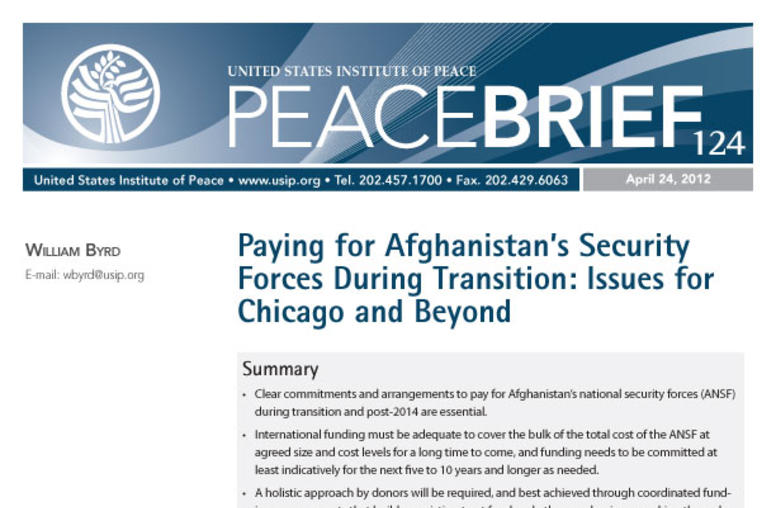
Paying for Afghanistan's Security Forces During Transition: Issues for Chicago and Beyond
This report reflects the authors' research interests and several publications on security sector reform from a financial and development perspective. It is intended to lay out key issues and trade-offs in this area, and brings in concepts and tools of public financial management which are applicable to the security sector.
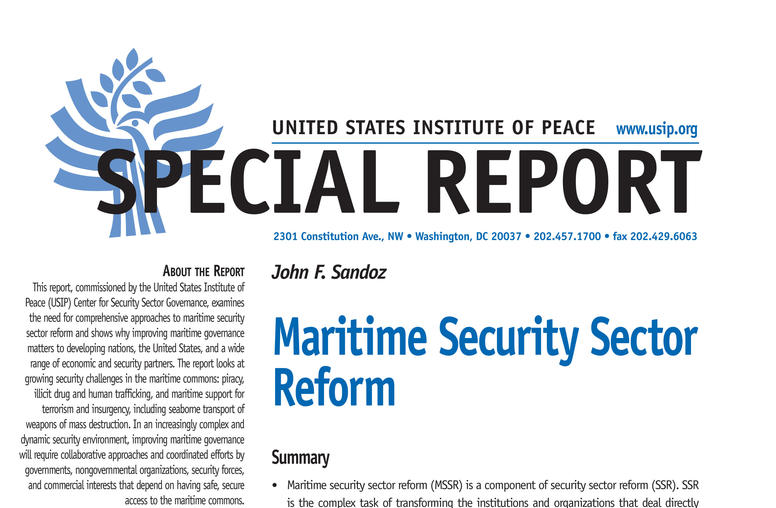
Maritime Security Sector Reform
This report, commissioned by the United States Institute of Peace (USIP) Center for Security Sector Governance, examines the need for comprehensive approaches to maritime security sector reform and shows why improving maritime governance matters to developing nations, the United States, and a wide range of economic and security partners.
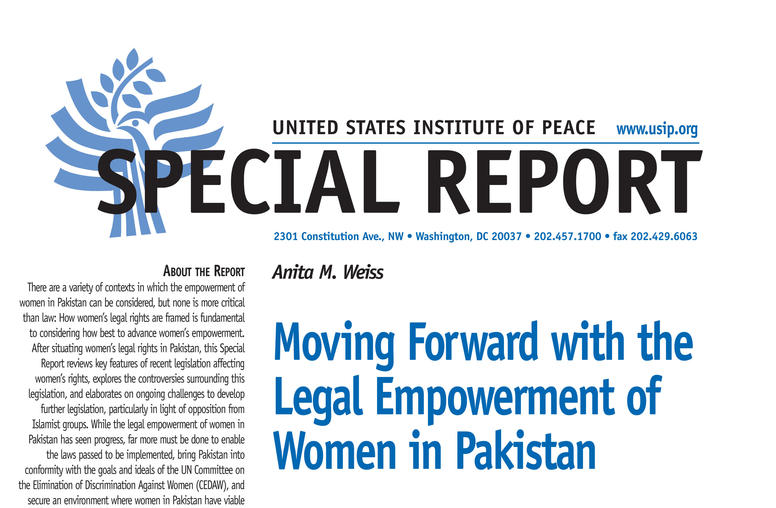
Moving Forward with the Legal Empowerment of Women in Pakistan
There are a variety of contexts in which the empowerment of women in Pakistan can be considered, but none is more critical than law: How women’s legal rights are framed is fundamental to considering how best to advance women’s empowerment. After situating women’s legal rights in Pakistan, this Special Report reviews key features of recent legislation affecting women’s rights, explores the controversies surrounding this legislation, and elaborates on ongoing challenges to develop further legis...
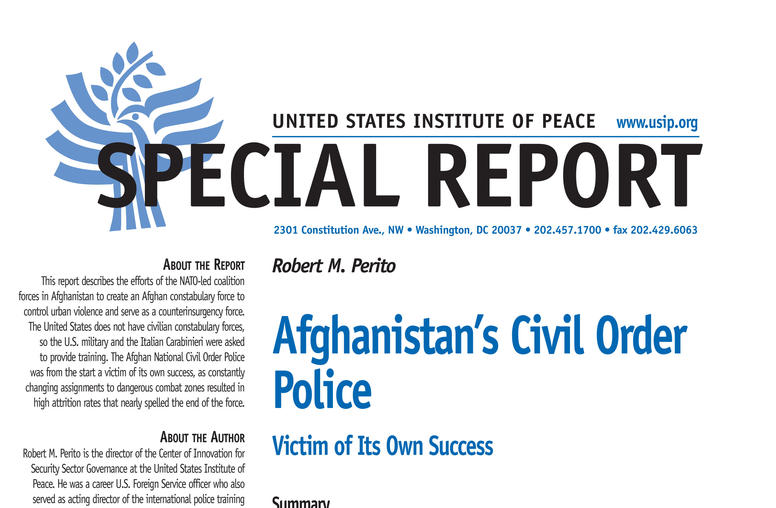
Afghanistan's Civil Order Police
This report describes the efforts of the NATO-led coalition forces in Afghanistan to create an Afghan constabulary force to control urban violence and serve as a counterinsurgency force.
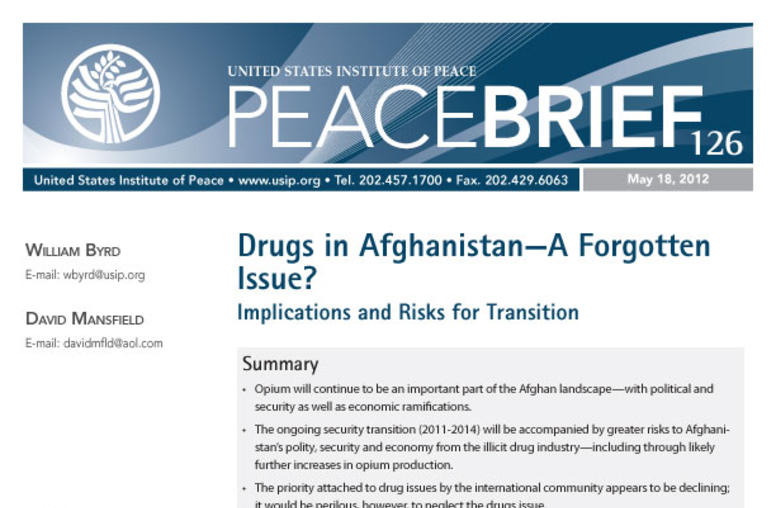
Drugs in Afghanistan—A Forgotten Issue?
This paper reflects both authors' concern that neglect of the opium economy in coming years could be perilous, exacerbate problems, possibly lead to poorly thought-out knee-jerk reactions and/or simplistic responses which would only worsen the situation, and further damage the prospects for success of what will inevitably be a difficult and challenging process of transition in Afghanistan.

First Anniversary of the Independence of South Sudan
As South Sudan celebrates the first anniversary of its independence, USIP offers a range of resources for examining the new country's first year and for beginning to discuss its trajectory in the coming years.
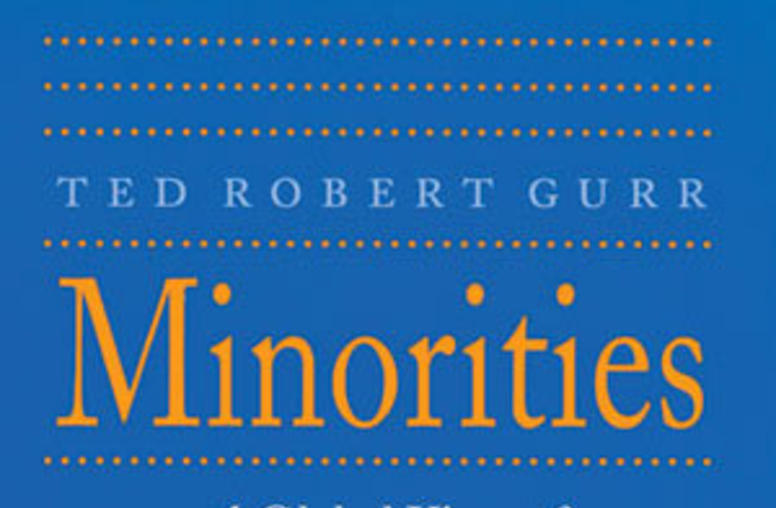
Minorities at Risk
The turmoil in Yugoslavia, the rebellions of the Kurds and Shi’is in Iraq, the ongoing struggle in South Africa—ethnic conflict continues unabated in many areas of the world. To help us understand the persistence of such conflict, this pioneering work analyzes ethnopolitical conflict in every region of the globe. An ambitious and unprecedented effort, it provides a comprehensive survey of 233 politically active communal groups, plus in-depth assessments of ethnic tensions in the western democ...
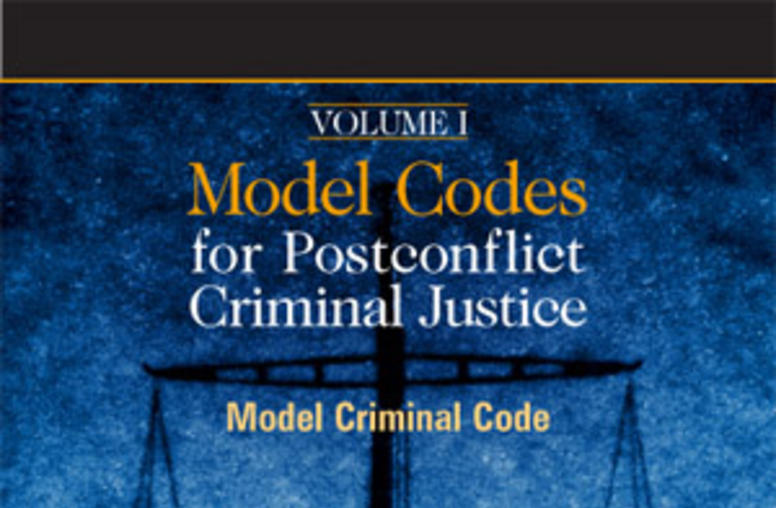
Model Codes for Post-Conflict Criminal Justice
Of unparalleled breadth, depth, and authority, the Model Codes for Post-Conflict Criminal Justice is a criminal law reform tool tailored to the needs of countries emerging from conflict. Its three volumes present four complete legal codes that national and international actors can use to create, overhaul, update, or plug gaps in the criminal laws in individual post-conflict states.
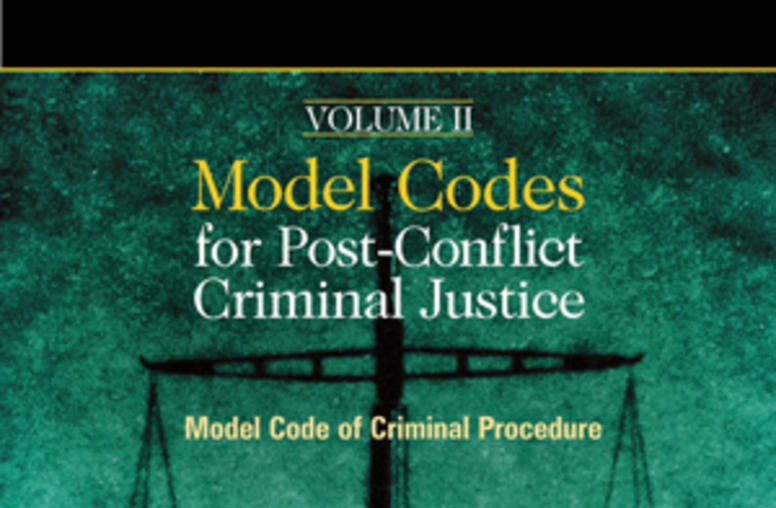
Model Codes for Post-Conflict Criminal Justice
Volume II of Model Codes for Post-Conflict Criminal Justice continues the path-breaking work of volume I, providing an indispensable resource for those striving to reestablish the rule of law in societies recently wracked by violent conflict.
The Role of Civilian and Military Agencies in the Advancement of America's Diplomatic and Development Objectives
George Moose, vice chair of USIP's board of directors, testified on March 5, 2009 before the House Appropriations Subcommittee on State and Foreign Operations on "The Role of Civilian and Military Agencies in the Advancement of America's Diplomatic and Development Objectives." The hearing focused on the role of the military and civilian agencies in U.S. foreign policy, in permissive and nonpermissive environments. Like Moose, the Subcommittee's Chairwoman Nita Lowey (D-NY) and Ranking Member ...